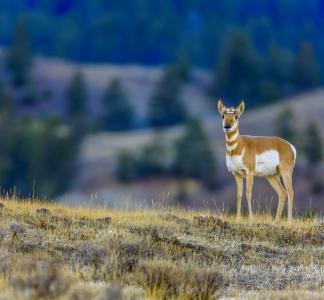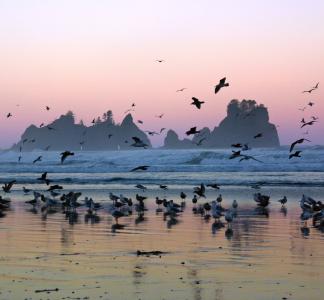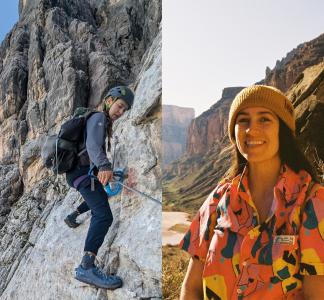Meet our 2025 Gloria Barron scholars!
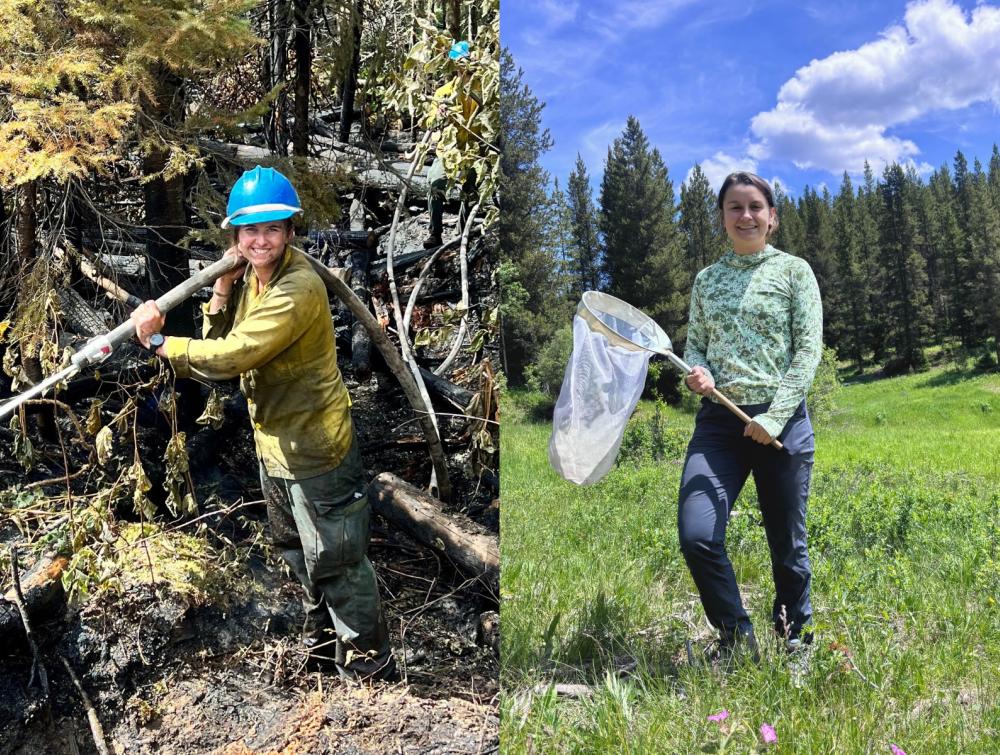
From left to right: Eloïse Armour and Malia Naumchik.
Selected projects will focus on national forest lands
Every year, we at The Wilderness Society are proud to empower the next generation of conservation leaders through the Gloria Barron Wilderness Society Scholarship. Named in honor of the eponymous devoted educator and conservationist, the scholarship provides project funding for graduate students seeking to understand and protect our natural world.
Though they come from very different backgrounds—on opposite sides of the world, in fact—this year’s scholars are both conducting important research in national forests. One project will focus on analyzing fire suppression strategies while the other will focus on plant-pollinator communities, but both will attempt to improve management practices in spite of the ongoing crisis at the Forest Service.
“The research questions that Eloïse and Malia are addressing are vital to our understanding of how to conserve and promote healthy wilderness ecosystems,” our Director of Research Mariah Meek, PhD, told me. “We are so excited to support their work to help protect our beautiful public lands for generations to come.”
Meet this year’s scholars—Eloïse Armour and Malia Naumchik—and learn about their projects:
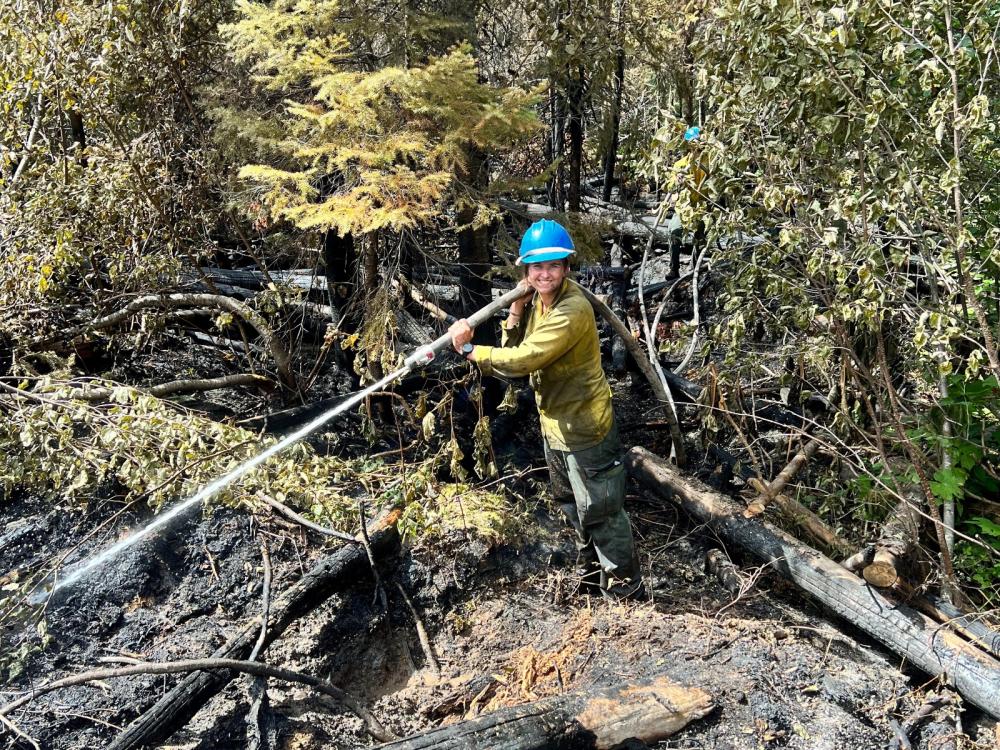
Eloïse Armour in the field.
Eloïse Armour
Born in the United States to an American father and French mother, Eloïse lived most of her early life in Paris, though her maternal family’s history of farming in northern France gave her a connection to nature. After moving to California for undergrad, Eloïse did what she thought was “the normal thing:” she got a desk job. Until she had a “quarter-life crisis” and took a solo road trip through the American West that changed her personal and professional trajectory.
Eloïse tells me it was during this time, when she saw park employees conducting trail work in the middle of winter in Zion, that she fell into conservation. “I just thought to myself, ‘I bet they can sleep well at night.’”
That moment planted a seed and led her to join the Conservation Corps in Utah. Eloïse spent 2 years working in and around Moab. “That was pretty much as good as it gets, really. A lot of what we did was fuels reduction, and I had a really great boss who was willing to teach me whatever I wanted to learn.” While the work was rewarding, the stipend was modest. “I heard people in fire made more money, so I started exploring that.”
Eloïse then moved to Montana and spent six years working in wildland fire for the US Forest Service. She credits a superior with driving her interest in fire by explaining the complexities of fire management, especially in comparison to fire suppression. “Later in the season I remember being on a fire that was overlooking a wilderness area, and somebody said something like, ‘Oh man, this fire's doing nothing but good.’ I wondered to myself, well then why am I putting it out?”
Eloïse is currently a dual master’s student in Environmental Management and Ecology at Western Colorado University. She credits her advisor, fire ecologist Dr. Jonathan Coop, with giving her a chance. “I don't have an ecology background; I studied sociology and politics in undergrad. But he valued my professional experience and gave me a chance—I'm so glad he did, because I really believe in what I'm doing.”
Eloïse’s thesis analyzes how fire suppression and management, climate stress, and proximity to human development drive ecological change across western wilderness areas. She aims to provide a framework to guide adaptive management in a shifting climate. “My interest is really in bridging the gap between the people doing the land management and the people planning the land management—kind of finding a way to speak both languages and speak to the human dimensions of fire.”
For Eloïse, receiving the scholarship is a dream. She read about the Gloria Barron Scholarship just after last year’s application window had closed. “I already knew at that point I was going to be doing my thesis only on wilderness areas and I just kind of couldn't believe that this [opportunity] existed.” For Eloïse, it’s a chance to turn lived experience into research that informs the future of public lands.
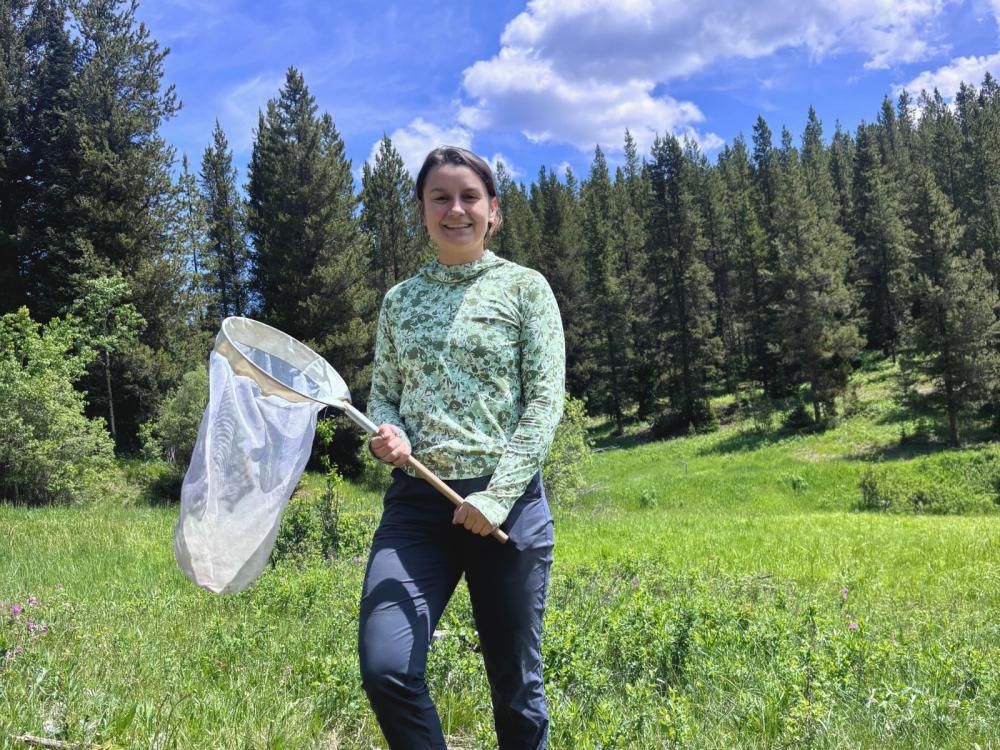
Malia Naumchik in the field.
Malia Naumchik
Born in Hawaii and Native Hawaiian on her father’s side, Malia credits her home and Hawaiian culture with leading her to conservation. “There's this school system called Kamehameha Schools and they have a program called Ho‘omāka‘ika‘i for 5th and 6th graders that’s focused on reconnecting with Hawaiian culture—which is very land management based. There’s an idea that you're taking care of the land and it helps take care of you.”
Though Malia’s family left Hawaii when she was still young, she had the great privilege of returning most summers to visit her grandparents—which gave her the opportunity to discover local public lands.
“Haleakalā [National Park] is the most beautiful area. You can start on a hike at the very top of the volcanic crater and go down through so many different ecosystems—desert, volcanic rock, jungle forest, all the way down to the beach. It’s just the most amazing place on earth and has like the craziest types of plants that you just never see anywhere else.”
Her father’s military career led the family to move across the country, and after starting in community college Malia transferred to North Carolina State University. “It was after I transferred that I got research experience in a lab working on an urban pollinators project. That was really the moment where it clicked for me and I thought, ‘This is something that I could really see myself doing.’
“We went to different cities across the country and sites with various levels of urbanization and compared bee health. We would take temperatures; see how often they were visiting different plants; see how effective pollination was. That was when I really became interested in the pollination aspect of things.”
Malia is now a master’s student in Ecology at Montana State University, where she will continue her Ph.D. studies. Her project will examine the effects of forest management practices in the Custer-Gallatin National Forest on plants and pollinators. “A recent forest management project, the Bozeman Municipal Watershed project, has been doing some logging and a bit of burning. I’m going to be looking at how that’s affecting the plant-pollinator communities and revegetating some disturbed sites. I think finding out what species that benefit pollinators could grow in heavily disturbed areas is a real priority.”
As a Gloria Barron Scholarship recipient, Malia is proud to be supporting public lands. “All my graduate research has been focused almost completely on public lands research. I think that public lands are really important. It kind of goes back to culture, like I really have this sense that we take care of the land and it takes care of us. I feel like public lands kind of embody that spirit.”
